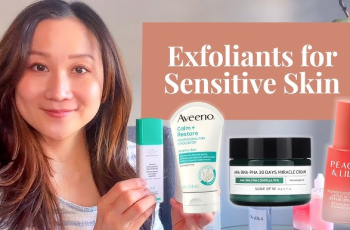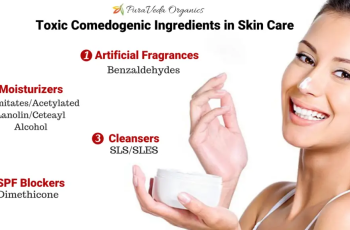
Water in Skincare
Types of Water in Skincare
Water, also called “aqua” on cosmetic labels, is found in almost every skincare product. This blog post is about water in skincare and water for washing your face.
How Minerals in Water Affect Your Skin
In hard water, mineral salts such as Ca2+, Mg2+, etc. can reduce the foaming of surfactants in cleansing products. This can lead to soap residue and scale in bathtubs and sinks.
These minerals can also be deposited on the skin and hair. The resulting reduction in detergent foaming can cause you to use more detergent and put a greater burden on the detergent.
This can damage your skin barrier. Therefore, hard water can cause dry skin.
Mineral salts in hard water react with fatty acids in soap to form so-called metallic soaps, which remain on the skin after rinsing unless washed off with ultrapure soft water (UPSW).
This metallic soap can irritate the skin and cause allergic reactions. It disrupts the skin barrier directly and by affecting the secretion of lamellar bodies by keratinocytes (a process regulated by Ca2+).
It is important to note that the irritation potential of surfactants and detergents depends on the hardness (Ca2+ content) of the water used.
Hard Water and Eczema
Hard Water and Eczema
Research has shown that washing with UPSW can alleviate symptoms of atopic dermatitis (AD) in children.
However, AD symptoms did not improve if the water contained low concentrations of residual metal ions. In contrast, soft water containing residual metal ions was not effective in preventing AD. Results of a study conducted on mice by Tanaka et al. (3) showed that metal soaps induced and exacerbated AD symptoms unless the mice were washed with UPSW lacking multivalent cations.
UPSW itself did not exacerbate AD symptoms, but the presence of metal soaps did.
Why is water or Aqua the first ingredient in skin care products?
Ingredients on product labels are listed in descending or predominant order.
[i] Water, referred to as Aqua in the International Nomenclature of Cosmetic Ingredients (INCI), is often the most abundant ingredient in skin care products.
But not all water is the same. Let’s talk about the importance of the source of water in skin care products.
The pharmaceutical industry is subject to strict regulations on the use of water in pharmaceutical products.
Water is important for skin care for two main reasons:
It is found in skin care products and medicines.
It is used in daily skin care when washing the face and body.
What types of water are used in skin care products?
What type of water is used in skin care products and cosmetics?
Most skin care products use potable water, but some of the more expensive brands use USP purified water.
The classification of these waters is explained at the end of this blog.
Hot Spring Water
Hot Spring water is water that comes from hot springs. It is also known as thermal water.
This water contains minerals that are beneficial to the skin. The table below compares the mineral content of different brands of hot spring water.
Each mineral has a different effect on the skin.
Calcium and magnesium can damage the skin barrier, especially when used with harsh cleansers. On the other hand, selenium soothes the skin, while strontium reduces skin irritation.
Thinking about the type of water used in your daily skin care will help you choose the best product for your skin concerns.
Minerals in Thermal Water
Thermal waters from well-known brands such as La Roche-Posay and Avene contain a variety of valuable minerals that nourish and strengthen the skin:
Selenium: It has powerful anti-inflammatory properties that soothe irritated skin. It also has antioxidant properties, protecting the skin from harmful free radicals and environmental influences.
Sulfur: Sulfur is known for its anti-inflammatory and antimicrobial properties, which can reduce redness and irritation while promoting skin healing.
Therefore, it is particularly suitable for acne-prone or sensitive skin.
Zinc: Due to its anti-inflammatory and soothing properties, zinc can soothe the skin and relieve irritation. It also aids in wound healing and helps treat acne-prone skin.
Magnesium: Magnesium is essential for overall skin health and helps reduce stress and soothe the skin.
Studies have also shown that certain magnesium salts and blends of magnesium and calcium salts can speed up the regeneration of the skin barrier, thereby supporting the health and function of the skin.
Calcium: Calcium is essential for skin barrier repair and plays an important role in maintaining skin integrity and function.
It affects the secretion of keratinocyte laminae, specialized organelles responsible for the production and secretion of lipids that help form the skin barrier.
Thermal water from brands such as La Roche-Posay and Avene is rich in minerals and has countless benefits: it nourishes the skin and ensures a healthy, radiant complexion.
The minerals work synergistically to support the natural functions of the skin and relieve various skin problems. Thermal water is therefore a valuable addition to skin care.
Table of types of thermal water and their ingredients
Table of minerals in thermal water
Micellar water or micellar water
Micellar water consists of mild surfactants that form micelles in soft water. Micellar water looks and feels like water, but it is a face wash that contains surfactants.
It is not suitable for dry, sensitive skin. Be sure to take our skin type test and get our product recommendations.
Once you know your Baumann skin type, you can read product reviews and shop according to your skin type number.
Take the test
Tap water
Tap water is drinking water from a municipal water supply. It may contain minerals such as calcium and magnesium. Hard water, such as the water in New York City, is tap water that is high in minerals. In my hometown of Lubbock, Texas, the water is softer and has fewer minerals. When I was growing up there, people added fluoride to the water to prevent tooth decay.
In some cities, such as Miami, where I live now, chlorine is added to the tap water to prevent algae growth.
These minerals contain ions that affect skin cleansing, the skin barrier, and skin inflammation.This is one reason why you need to adopt a different skin care routine in each city.
Tap water is often used to make skin care products. As you can see, there are a wide variety of minerals in tap water that can affect the finished skin care product.
Is tap water safe for skin care products?
Distilled water
Distilled water is considered undrinkable. (It contains no salt or minerals and is acidic, making it unsuitable for drinking.) It is demineralized.
It is usually made by boiling water and collecting the steam and contains no minerals or microorganisms. Distilled water is ideal for cosmetics.
Deionized water
Deionized water, also known as DI water, contains ions from minerals, such as sodium and potassium. Deionized water does not remove microorganisms.
Filtered water
Tap water that has been passed through a filter to remove chlorine and improve taste.
Purified water
According to the USP, water must meet clear specifications to be considered purified water.
Purified water may be susceptible to biofilm, undesirable concentrations of live microorganisms, or endotoxins.
Therefore, the purification process needs to be continuously validated to ensure acceptable chemical and microbiological water quality.
Classification of Water
The water in skin care products comes from one of two sources:
Produced locally at the point of use through an in-house water system. This is called high-grade water.
Bottled water purchased externally.
The type of water used can affect the effectiveness of skin care products.
The ideal water for skin care products is sterile water – but this is too expensive. Therefore, USP purified water is the next best water for skin care products.
It is combined with preservatives in skin care products. Most companies use potable water because it is the cheapest.
The type of water used in organic skin care products is very important because most organic products do not contain preservatives.
Water can be classified into many types. The types of water contained in cosmetics are as follows:
Drinking Water –
Drinking water comes from surface and groundwater sources. It comes from a municipal water supply, but can also be taken from a well, river, or pond.
It is treated to remove microorganisms, toxic chemicals, and feces. Hot spring water is an example of drinking water.
Drinking water contains microorganisms. The U.S. Environmental Protection Agency (EPA) National Drinking Water Regulations set maximum limits for various contaminants.
Drinking water is the most commonly used type of water in cosmetics and skin care products.
USP Purified Water
Purified water is most often used to make non-sterile products that are injected or implanted into the skin or body.
Purified water systems are susceptible to microorganisms, so they need to be monitored and sterilized.
High-end skin care and cosmetics can use USP purified water, but it is more expensive than drinking water.
Sterile Water
This water is used to make sterile products for intravenous injections. It is packaged and sterilized.
This water can be used for dermal fillers and Botox, but is not typically used in skin care products due to cost.
What type of water is most commonly used in skin care?
High-end skin care and cosmetics may use USP purified water, but most use drinking water, such as spa water, tap water, or filtered water.
Are you looking for a skin care routine that works for your skin type?
We help you create a skin care routine using the best medical skin care brands.

